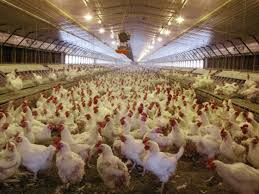
Oklahoma geologist and water specialist Bob Jackman thinks the state Board of Agriculture is missing some regulations in stemming the growth of poultry farms in eastern Oklahoma.
He made clear his feelings in a letter to the editor:
Ag board missing more regulations to stem chicken problem
The invasion of 200 industrial megachicken barns producing 80 million broilers annually has happened.
The main alleged issue has been state agency regulations on setbacks of Big Chicken’s new barns some distance from rural residents, churches and schools. Rural residents often complain of nasty odor.
Recently, the Oklahoma Department Agriculture, Farms and Forest board approved new setback standards used by industrial (not family) poultry industry in other Big Chicken states.
Rural folks protested the Farm Bureau’s allowed late involvement.
Now, legally more big barns will come producing its annual thousands of tons of chicken litter, brought to Oklahoma Green Country by the state agriculture board, Farm Bureau and Big Chicken!
Whoa! What’s missing is earth science, fowl-induced pollution facts suppressed by Industrial Poultry. Former Oklahoma Attorney General Scott Pruitt enabled this by turning off the state’s environmental science lights, and they’re still not on.
Missing are agriculture board regulations for hand-held olfactory meters testing the strength of toxic ammonia vapors from poultry barn blowers.
Also absent are regulations for ground and surface water quality testing by mass-spectrometer, a higher water quality standard used by other states.
Increasing megatons of chicken poop from northwest Arkansas and northeast Oklahoma will sooner or later trickle down, polluting our shared freshwater Boone-Rubidoux Aquifer. Oklahoma Water Resource Board’s Northeast Oklahoma Ground Water Study will not be completed until 2020. By then will Boone-Rubidoux Aquifer’s yields decline, and fowl-related pollution make Green Country well water unsafe for human consumption?
Bob Jackman, Tulsa





